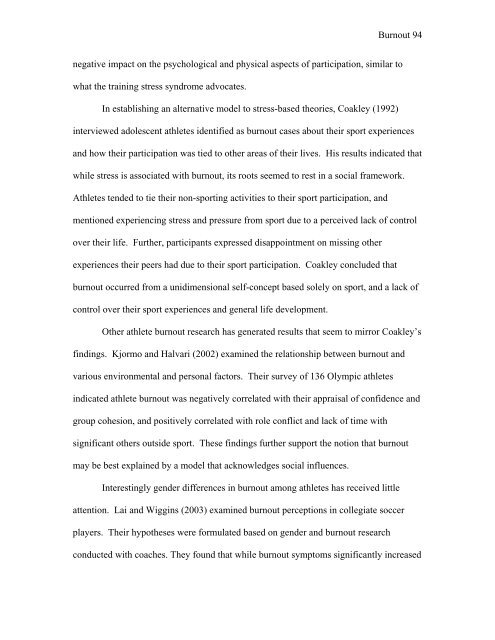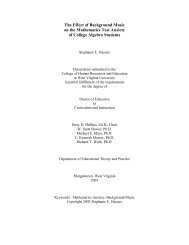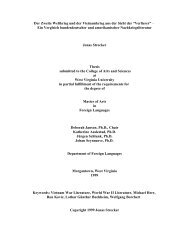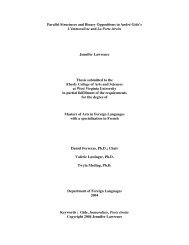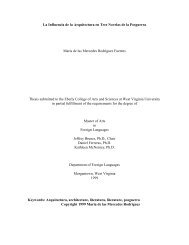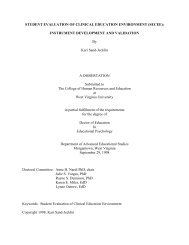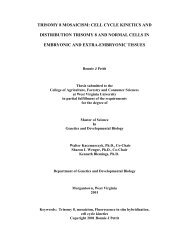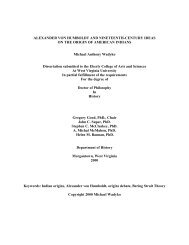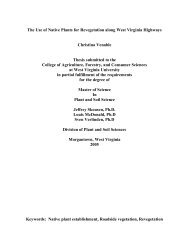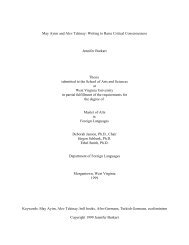Coach and Athlete Burnout - West Virginia University
Coach and Athlete Burnout - West Virginia University
Coach and Athlete Burnout - West Virginia University
Create successful ePaper yourself
Turn your PDF publications into a flip-book with our unique Google optimized e-Paper software.
<strong>Burnout</strong> 94<br />
negative impact on the psychological <strong>and</strong> physical aspects of participation, similar to<br />
what the training stress syndrome advocates.<br />
In establishing an alternative model to stress-based theories, Coakley (1992)<br />
interviewed adolescent athletes identified as burnout cases about their sport experiences<br />
<strong>and</strong> how their participation was tied to other areas of their lives. His results indicated that<br />
while stress is associated with burnout, its roots seemed to rest in a social framework.<br />
<strong>Athlete</strong>s tended to tie their non-sporting activities to their sport participation, <strong>and</strong><br />
mentioned experiencing stress <strong>and</strong> pressure from sport due to a perceived lack of control<br />
over their life. Further, participants expressed disappointment on missing other<br />
experiences their peers had due to their sport participation. Coakley concluded that<br />
burnout occurred from a unidimensional self-concept based solely on sport, <strong>and</strong> a lack of<br />
control over their sport experiences <strong>and</strong> general life development.<br />
Other athlete burnout research has generated results that seem to mirror Coakley’s<br />
findings. Kjormo <strong>and</strong> Halvari (2002) examined the relationship between burnout <strong>and</strong><br />
various environmental <strong>and</strong> personal factors. Their survey of 136 Olympic athletes<br />
indicated athlete burnout was negatively correlated with their appraisal of confidence <strong>and</strong><br />
group cohesion, <strong>and</strong> positively correlated with role conflict <strong>and</strong> lack of time with<br />
significant others outside sport. These findings further support the notion that burnout<br />
may be best explained by a model that acknowledges social influences.<br />
Interestingly gender differences in burnout among athletes has received little<br />
attention. Lai <strong>and</strong> Wiggins (2003) examined burnout perceptions in collegiate soccer<br />
players. Their hypotheses were formulated based on gender <strong>and</strong> burnout research<br />
conducted with coaches. They found that while burnout symptoms significantly increased


